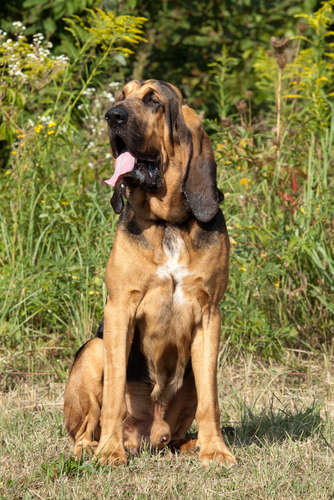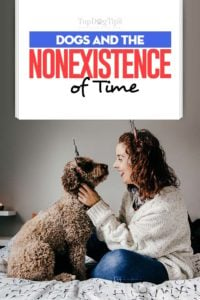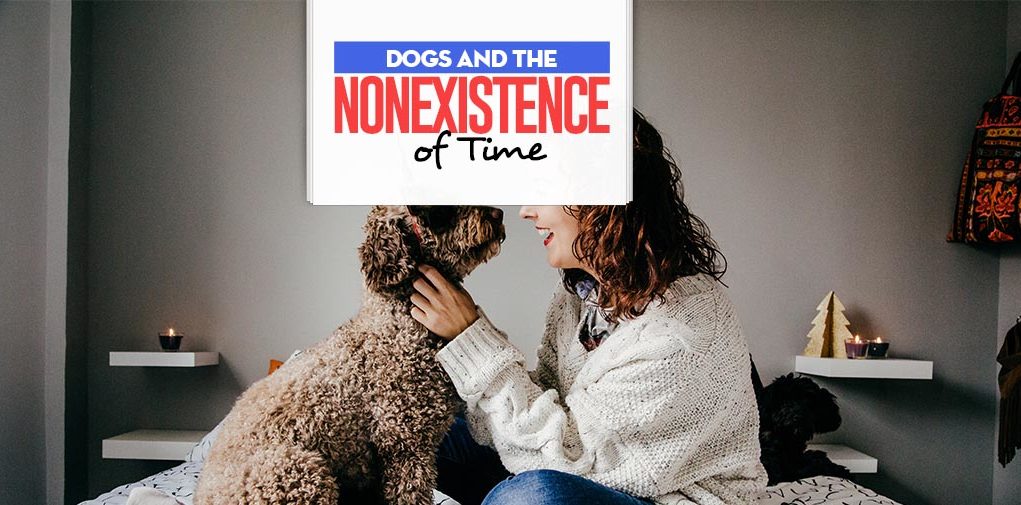Have you ever met a bloodhound? They are incredibly gentle, intelligent and stubborn creatures, loyal to their human friends, unbelievably tolerant of other animals and have a strong caring instinct. They’re also sometimes much like dog versions of sloths, since they seem to be moving around slowly, silently and droopily. Unless, of course, they are tracking down a scent. That’s one of the few things that gets them super excited.
Weirdly enough, they also like their private time, nap time and howl time. They never say no to a cuddle either. They can grow into enormous beasts, but their tender nature grants them equally enormous hearts.
Each and every Bloodhound has a distinct personality you will fall in love with instantly. Precisely because they tend to be so slow and quiet most of the time, you’d never guess how emotionally attached they can get.
This is my story about a Bloodhound that taught me a very important life lesson.
The Dog
His name was Ivan. As his glorious name would suggest, he was a magnificent, intimidatingly large dog with the warmest eyes I had ever seen. At first, he seemed incapable of making a single peep, as he quietly roamed through the yard, sniffing every nook and cranny, lazily dragging his ears around. He could snooze forever.
I was only nine, so our unexpectedly intimate first encounter was a real surprise. A shock, really. He basically saw me, jumped on me, grabbed my hair, knocked me down and dragged me across the yard.
Apparently, that was his way of accepting me into that giant heart of his, for life.
The cats figured him out pretty quickly, too. They started hanging out with him all the time, although it took him a while to understand that kittens are not valid chew toys, no matter how gentle he was. He’d scare the living hell out of them, since he could fit two kittens in his mouth and lovingly drool all over them.
In fact, the only time he wasn’t friendly was when he was pooping – that was his number one private time. My dad just loved freaking him out by following him around the house. Ivan would helplessly growl at him, trying to find a secluded area for his business. Alas, there is no such thing as a secluded place for a fully grown bloodhound surrounded by a human family and a cat family.
He walked me everywhere. Yes, I wasn’t under the illusion that I was choosing the direction while having a 154-pound dog on the other end of the leash. I knew my place, thank you very much.
We shared almost every moment, until school started again. He had enough time to get used to his new home and learn how loved he was. He was taking advantage of it like a pro!
Being so young, I figured that had to be the only creature in the world that understood me better than I ever could myself. Without any exaggeration, he knew exactly how I felt at any given moment in time. He knew what to do to make me feel better or when I simply needed him to be close to me.
I guess that’s why it never even crossed my mind that he could ever be upset with me…
RELATED: The Saga of Dog Ownership – A First-Hand Account
The Mistake
 It was still 1999, and my human best friend was home alone for almost the entire Saturday. My parents were working in the village house just outside of our hometown, so we decided to make it at least several hours’ worth of fun at her place.
It was still 1999, and my human best friend was home alone for almost the entire Saturday. My parents were working in the village house just outside of our hometown, so we decided to make it at least several hours’ worth of fun at her place.
Her house happened to be right across the street from my home. She wasn’t a big fan of dogs, so taking Ivan was out of the question. Her spending the day at my place wasn't going to happen either.
Ivan was fed, free to run wild in the yard, be with the grumpy cat association or just snore lying in the grass (which was what he would do most of the time during summer anyway). We said our goodbyes at the gate, meaning, he gave me his “I will never forgive you for leaving me” look, the one I was painfully familiar with, because he gave it to me every time I went out to the store that was two minutes away.
Maybe I didn’t take him as seriously as the situation required, but in my defense, I was nine. It was the end of summer and I spent every waking moment with him, plus I knew I would come back home. I strongly believed that he knew that, too.
Such a naïve mistake was never repeated on my part, as I finally learned how irrelevant time was to Ivan.
Before that, I was convinced that dogs have no sense of time whatsoever. It never occurred to me that time can be perceived as more than a collection of memories, ongoing perceptions and future expectations. As if the concept of time was neatly delivered to us with a free set of measurable chunks, intended to be used and understood almost automatically.
Therefore, I thought: if I can’t teach my dog to expect his walk around 5 p.m., he will never know that it’s 5 p.m. But, he will, however, know it’s time for a walk. That notion of a different way of perceiving time completely escaped my nine-year-old self.
The beauty of this dog point of view is in its simplicity – it revolves around being in the now, while still relying on the knowledge of the past and using the internal clock that every biological being has. Dogs use this to learn when it’s time to eat, go for a walk, when they can expect their human friends to come home, when they need to poop and other everyday stuff.
Also, no matter how little time you spend apart, it feels like forever to them. This causes some dogs to develop separation anxiety. It’s a coping mechanism, an emotional response that dogs can’t predict or prevent on their own. Separation anxiety is caused by stress the dog feels in the prolonged absence of their human parents.
Sometimes, it even has nothing to do with the “prolonging” part, but mere absence. We don’t cause this on purpose, but we do encourage it by letting our dogs become too attached to us and not teaching them patience and obedience.
You also need to be careful, because separation anxiety can also be a learned behavior. As the dog realizes that earning attention requires them to misbehave, they will repeat this until they are taught to be more obedient. In this case, the sneaky creatures don’t really feel that stressed at all.
They do need more attention from you and definitely more training, but they most likely aren’t going through excruciating emotional pain when you leave your place for an hour. All of this “fancy talk” boils down to the fact that your dog can actually miss you to the point that he hurts himself.
I didn’t know any of this then.
Ivan was, to me, a semi-mysterious, wise, four-legged creature that showed emotion to a certain extent and in very specific, predictable ways. His eyes showed me all the love, devotion, understanding and the protective urge he had for me. He wasn’t the type to jump around too much, bark or run in circles.
This mislead me into thinking that he was fully aware of the fact that I would come back every time I went away, no matter for how long. At times he even seemed strangely self-sufficient, not paying any attention to anyone, simply enjoying in the sun or sniffing around for nothing in particular.
He had a unique way of asking for cuddling, too, as if he knew exactly when and how much he wanted to be close with me. Don’t forget, I was nine, and tiny compared to him. He had to figure out a way to let me know he wanted to be in the center of attention without knocking me over.
A clever beast, he would nudge me with his head and lean gently against me. As soon as I would stop, for whatever insane and unforgivable reason, he would lift and place his paw on my lap.
All of that tenderness in his behavior made me think that he would miss me whenever I left, but could never cause him to become so upset to make a complete mess. Especially since he became a part of our family when he was already a grown up, well-behaved dog. Boy, was I wrong.
RECOMMENDED: 13 Helpful Tips for Rescuing A Dog From A Shelter
The Epiphany
 I will never forget the sight of my backyard when I got home. My dad’s tool shed was practically turned upside down. Countless pieces of cloth were dispersed all over the place, chewed, torn to bits, and covered in drool and dirt.
I will never forget the sight of my backyard when I got home. My dad’s tool shed was practically turned upside down. Countless pieces of cloth were dispersed all over the place, chewed, torn to bits, and covered in drool and dirt.
The freshly washed clothes that were hanging outside were also everywhere. At that point, there was no discernible difference between the clothes and the rugs and cloths.
Most of the flowers were dug out of the ground, there were piles of dirt everywhere and the cats were nowhere to be found. A bunch of screwdrivers and wrenches were stomped into the mud, and an old tire had been knocked over and apparently chewed on and covered in drool.
Bits of chewed wire, soap and plastic bowls looked pretty much the same, and were all over the steps that were leading to the front door. There were things that I wasn’t able to recognize or identify based on their state.
I just gave up and tried to figure out how much of that mess was cleanable within a time span of approximately five minutes. My parents were about to walk in on the artful exhibition, and I wanted to clean up as much as possible before they saw what Ivan had done.
Ivan was sitting next to the front door, with his saggy face and floppy ears, seemingly very peaceful, almost serene. Everything was still, except for his eyes. He didn’t run or walk toward me. He was just sitting there, looking at me with pain and disappointment in his eyes.
I get that anxiety comes in many shapes and forms, but I didn’t expect my best friend in the whole world to be so extremely upset with me simply because I spent a few hours somewhere else.
I’m not sure if there’s a point in sharing how my parents reacted. For the sake of colorfulness, try to imagine my mom laughing her butt off because she found the whole thing hilarious up until the point when she saw the once clean underwear spread all across the yard. That she didn’t find funny. My dad, however, added to the hilarity by swearing and yelling randomly at me, Ivan and my mom.
Honestly, I found the situation funny, too, at first. But when the initial chaos subdued, I forgot that I was nine and felt ashamed of my own disregard for the beautiful, kind creature I called my best friend. That realization that I, in fact, took him for granted was so overwhelming, I ended up crying before I fell asleep. And the fact that I knew he had already forgiven me didn’t make me feel any better at the time.
There were so many things I could have done to prevent the situation, it was painfully simple.
I could have checked up on him at least once or twice, because I knew that leaving a dog with nothing more than a bowl of water was boring and inconsiderate. The only excuse I had was that I got carried away in all the fun and didn’t realize that the hours that passed so quickly for me were, for a dog, an immeasurable eternity of waiting.
The bottom line was – I failed him.
 He could never verbalize the fact that he needed my presence, or for how long, and his mellow temperament never really gave away the deep pain he felt whenever I wasn’t there. I was too young to teach him that I would come back and that there was no need for him to feel abandoned or betrayed by my temporary absence.
He could never verbalize the fact that he needed my presence, or for how long, and his mellow temperament never really gave away the deep pain he felt whenever I wasn’t there. I was too young to teach him that I would come back and that there was no need for him to feel abandoned or betrayed by my temporary absence.
I made a promise to myself that I would do my best to read my dogs much more carefully and to pay special attention to how they express all the various emotions they might not be able to show so clearly and in a human-friendly way. Knowing that each dog is different in theory is not enough. It takes true awareness and appreciation of their identities, as well as recognizing our own impact on their confidence and growth, to fully comprehend how complex and profound these friendships can be.



